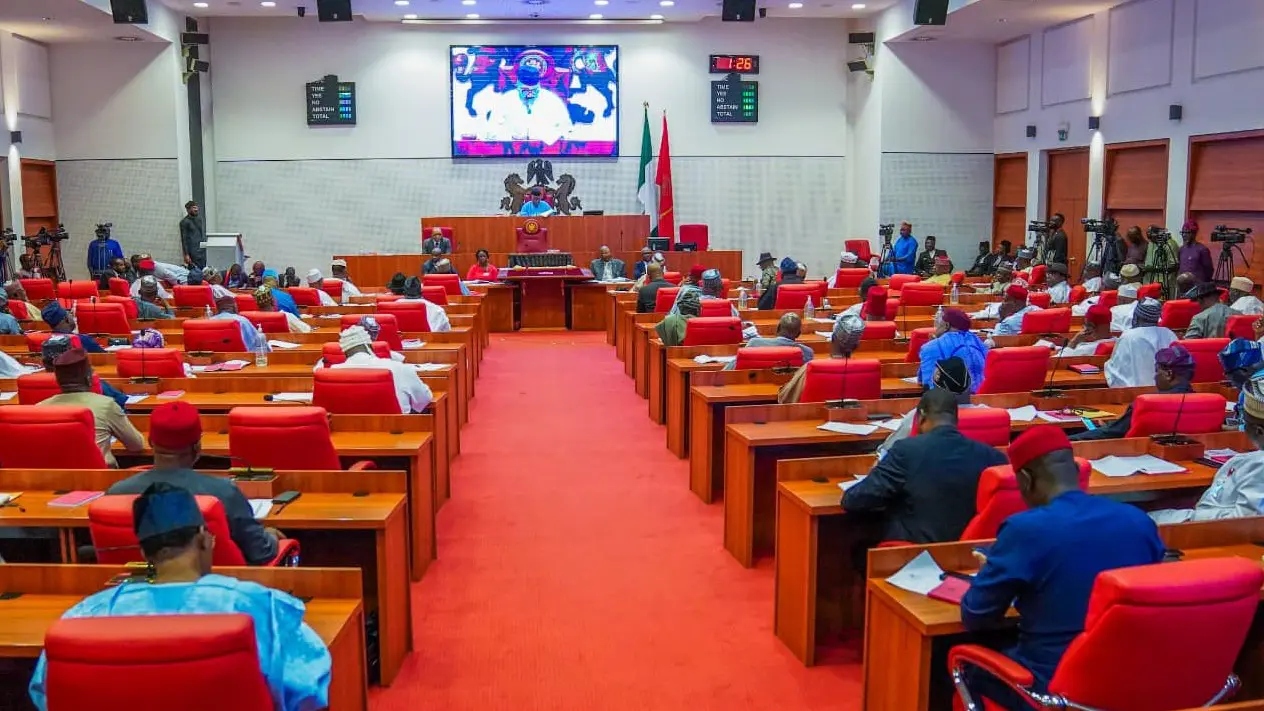Headlines
BREAKING: Senate Passes N6.2trn Appropriation Act for 2nd Reading

The Senate advances the N6.2trn Appropriation Act amendment bill to its second reading. Discover the key highlights.
An amendment to the 2024 Appropriation Act was passed by the Nigerian Senate on Wednesday. The sum of N6.2 trillion has been allocated for both capital and recurrent expenditure in the upcoming fiscal year of 2024.
Senator Michael Bamidele Opeyemi presented a revised bill to the Senate stipulating that N3.2 trillion will be allocated for capital expenses and another N3 trillion designated for recurrent expenditures, all of which must be expended before 2024 is over.
Senator Adamu Aliero from Kebbi South presented his contribution, stating that the proposed amendment aligned with the Renewed Hope Agenda. He emphasized that it would provide funding for essential projects not initially included in the primary Act.
He emphasized to the Senate that passing the amendment into law is crucial in addressing the ongoing talks with labor regarding minimum wage. He further stressed that quick action must be taken by senators to prevent a strike from occurring.
Senator Seriake Dickson expressed his disagreement with the bill, stating that hastily passing it could result in unanticipated issues.
He remembered the public’s negative response to a bill that had been passed hastily, and emphasized that lawmakers ought to steer clear of being publicly mocked when conducting legislative affairs.
Dickson opposed the idea of combining amendments to both the Appropriation Act and Finance Act, 2023. He expressed his disagreement by stating that he did not believe in such an approach and proposed to prioritize stepping down the Finance bill if given a chance.
It is imperative that the participation of experts and critical stakeholders takes place in public hearing. Given the magnitude of discussing taxation, as well as our desire to generate N500 billion through banks currently meeting recapitalization requirements–both are crucial bills–we must exercise caution in deliberations.
Senator Sani Musa, who represents Niger North under the ruling All Progressives Congress, emphasized that banks generate substantial profits as evidenced by their yearly financial reports.
Due to the strong policies of the government, he claimed that it was possible to generate profit; therefore, taxing banks should not pose a challenge.
“Money bills hold great significance,” he stated. “Observing the annual report, it becomes evident that commercial banks are yielding significant profits despite the struggles faced by our country.”
In my belief, banks ought to be heavily taxed as they generate profits from the policies implemented by the government. The objective of abolishing oil subsidies and closing economic disparities is in favor of our nation.
Following the endorsement of other senators in support of the amendment to the Act, Deputy Senate President Jibrin Barau, who chaired the plenary session, requested for an oral vote and it garnered approval for its second reading.
